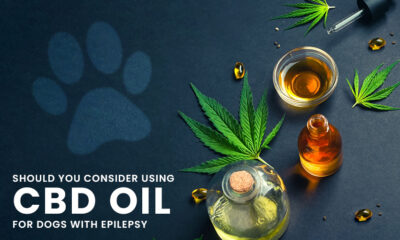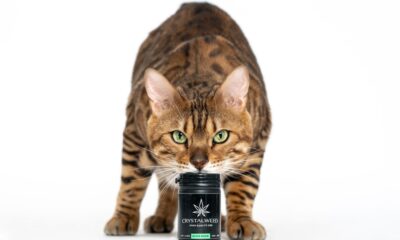CBD Oil
CBD Oil for Dogs – How It Works and Why Use It
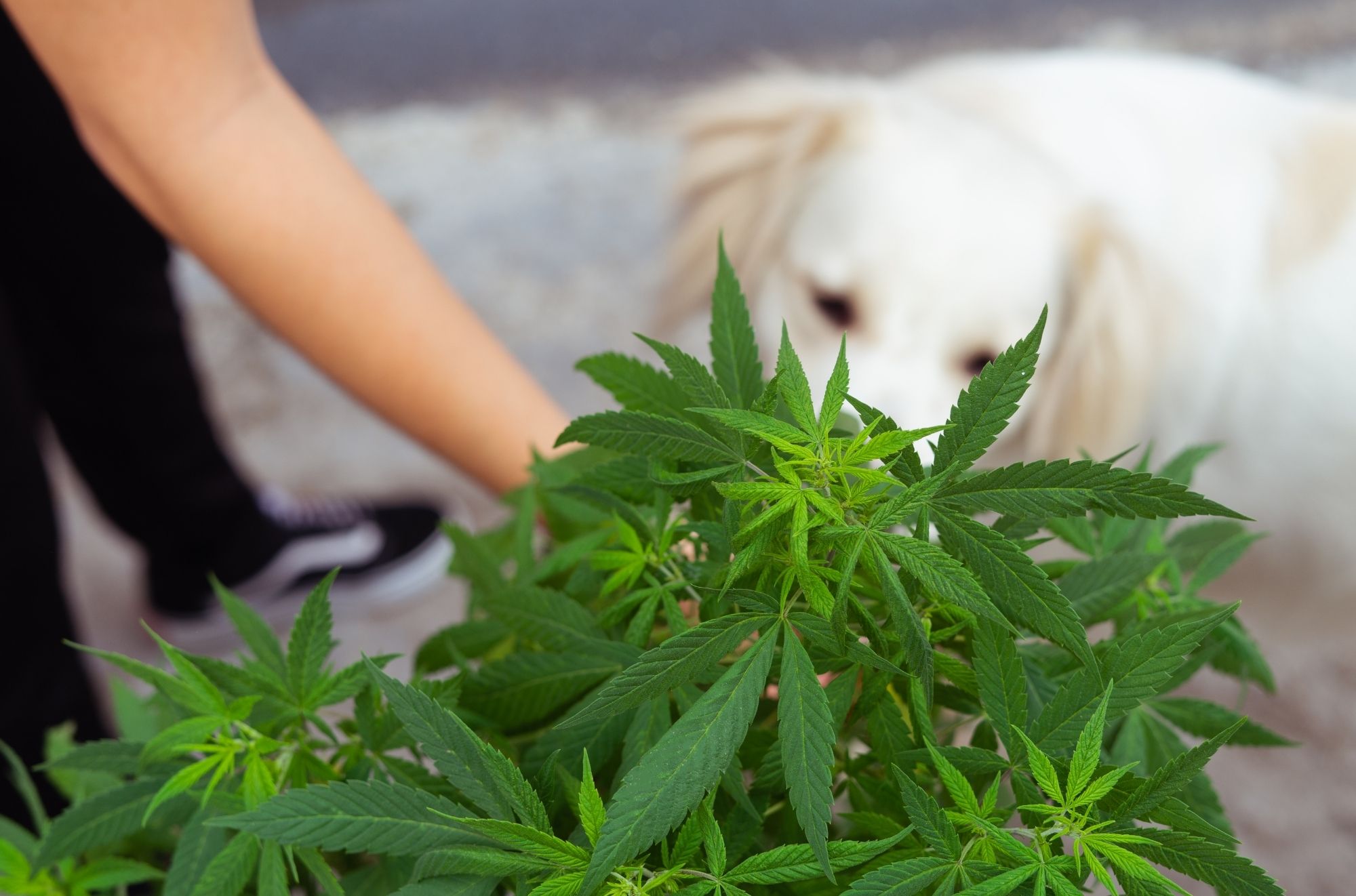
CBD or cannabidiol is the latest cutting-edge supplement being used therapeutically for pets – including dogs, cats and horses. Why is this? The reasons are many, but it’s been found to be one of the most powerful health-promoting supplements today. CBD oil acts on the endocannabinoid system present in all mammals including your dog. This system aids in regulating a range of processes in pets like dogs – from immunity to skin and hair health. It may be the next key in improving and protecting the wellbeing of our pets. Best of all, it’s not addictive, highly nutritious and aids in improving the coat of your dog’s fur. It’s still being researched currently in clinical trials however much of the anecdotes from dog owners suggest the potent anti-inflammatory and homeostasis promoting benefits of CBD. Let’s look at why your dog might need it and where to buy it in Australia.
If you’re reading here, you’re likely asking yourself what the best full spectrum CBD oil is for dogs and how to provide it to them. The good news is – we’ve got you covered. We’ll look at what the different forms of cannabis extract oils are, how it gets produced, and what the different ways to take this health supplement for your dog look like – from capsules, edibles, oils and more. We will also cover its top benefits for your pet and how these effects occur to keep you in the know. Its beneficial applications are as broad as physical issues like arthritis in dogs to mental problems like depression.
Skin Irritation and Skin Problems
The most common skin condition of pets is pruritus (itchiness). The condition can be so bad that pet owners turn to euthanasia. Now cannabidiol may offer an option. Sensory nerve fibres from the skin contain cannabinoid receptors. Researchers found that cannabinoids applied directly to the skin can significantly reduce itching in humans. Other studies have also found that cannabinoids can protect against contact dermatitis.
Besides these conditions, there is also limited evidence that cannabinoids may be helpful in the prevention or treatment of liver disease, kidney disease, and lower urinary tract infections. Much more research needs to be done to both uncover their full potential as well as sift out false leads. Cannabinoids are not miracle workers. They are not going to cure cancer— but they just may slow it or make it more bearable. Or maybe they will cure it in its early stages—we just don’t know yet. There’s no evidence of cannabinoids being helpful in other major health issues of canines, heart disease, or that they can combat common hereditary conditions such as progressive retinal atrophy, hip dysplasia or patellar luxation. But they may help alleviate anxiety from breathing or visual problems, or inflammation and pain from joint problems. Cannabinoids like CBG and CBN are not miracle workers—they won’t fix everything—but for dogs with problems they do work on, they just may be highly effective.
It’s apparent that full spectrum CBD oil is becoming a vital tool in the fight against health issues—but even more important is their value in maintaining health. Cannabinoids prevent and combat common complaints of aging, including diminution of mental capacities, anxiety, lack of appetite, and inflammation and pain associated with arthritis. But beyond that, cannabinoids may simply make pets feel better, improving their comfort, mood, activity and appetite, so they feel and act like a younger version of themselves—and maybe even better.
When your pet is more active, has better mental clarity, better muscle tone, better nutrition and maintains a proper weight, those factors contribute to better health, better quality of life, and longer life. Even in younger pets, cannabinoids play an important role in maintaining homeostasis. Foremost among cannabinoids’ benefits for healthy pets is their reduction of inflammation, as inflammation can bring on a host of problems including pain and arthritis. Cannabinoids are better used as a part of a holistic approach to pet health, not simply a therapy to turn to when things go wrong. Unlike humans, pets can’t tell you that they feel lethargic, depressed, or confused. Once owners notice such things, the condition is usually advanced.
Nor can they go out and hunt for plants or foods that may contain nutrients missing in their diet. It’s up to us to supply a balanced diet with any supplements their body may be lacking. Especially considering the possibility of endocannabinoid deficiency syndrome, the prudent practice is to give our pets’ bodies access to some of the most important natural compounds for their health and well-being: cannabinoids.
How it works
Different cannabinoids found in full spectrum hemp oil can help benefit your dog’s health and wellbeing through their interaction with the endocannabinoid system. This system supports and strengthens the immune system, metabolic and cell health plus homeostasis (also found in dogs). In other words, it assists in maintaining wellbeing and balance within the body and mind. What’s becoming more and more clear over time is the endocannabinoid system can assist dogs in numerous ways from improving sleep quality to enhancing immunity and mood.
How does it work? The system consists of many receptors across the body and brain of both humans and dogs. These are known as the CB1 and CB2 cannabinoid receptors. CB1 types are found primarily in the body, including the gut, spleen, skin and other important organs. CB2 is primarily found in the brain, spine and brain stem. Both play an important role in the system’s function. When cannabinoids like CBD or THC are consumed it triggers these receptors. This causes them to release endocannabinoids, powerful anti-inflammatory and anxiolytic (anxiety reducing) compounds that assist with a range of health issues. Most important of these is anandamide which can help dogs with everything from pain reduction to improvements in arthritis symptoms.
If you’re reading here, you’re likely asking yourself what the best way to get these benefits for your dog is. Full spectrum CBD oil containing cannabidiol is known to be the top way to trigger the endocannabinoid system. The name full spectrum denotes oil products taken from the whole hemp plant, meaning it contains a variety of important nutrients including terpenes and flavonoids that contribute to the entourage effect. In both humans and dogs this effect accentuates the action of cannabinoids on the endocannabinoid system, creating more endocannabinoid release and improving health outcomes.
Conclusions on Health Benefits for Dogs
Fifty-plus years of medical research on cannabinoids have produced thousands of studies, revealing dozens of health applications in animals. Hemp oil is the most well-known and often studied non-psychoactive cannabinoid and has been found to be non-toxic, with very few, if any, side effects. Indeed, its effects are the opposite – promoting health, longevity and reducing inflammation for both old and young dogs. We have found in our research that it aids particularly in chronic issues relating to arthritis and other forms of joint or nerve pain. We use ours with our old Labrador daily to help it get the best quality of life.
There are multiple cannabinoids in this healthy and beneficial extract that can potentially provide therapeutic benefits for canines, including cannabidiol, CBD, CBG, CBC and BCP. Endocannabinoid deficiency syndrome may be responsible for health issues in aging pets. Cannabinoids are not just for when your dog is sick or when pharmaceuticals fail. They are a beneficial component of daily nutrition for all pets.
Medical Disclaimer:
The information provided in these blog posts is intended for general informational and educational purposes only. It is not a substitute for professional medical advice, diagnosis, or treatment. Always seek the advice of your physician or other qualified healthcare provider with any questions you may have regarding a medical condition. The use of any information provided in these blog posts is solely at your own risk. The authors and the website do not recommend or endorse any specific products, treatments, or procedures mentioned. Reliance on any information in these blog posts is solely at your own discretion.
CBD Oil
Unlocking the Healing Power: A Comprehensive Guide to CBD Oil in Canada
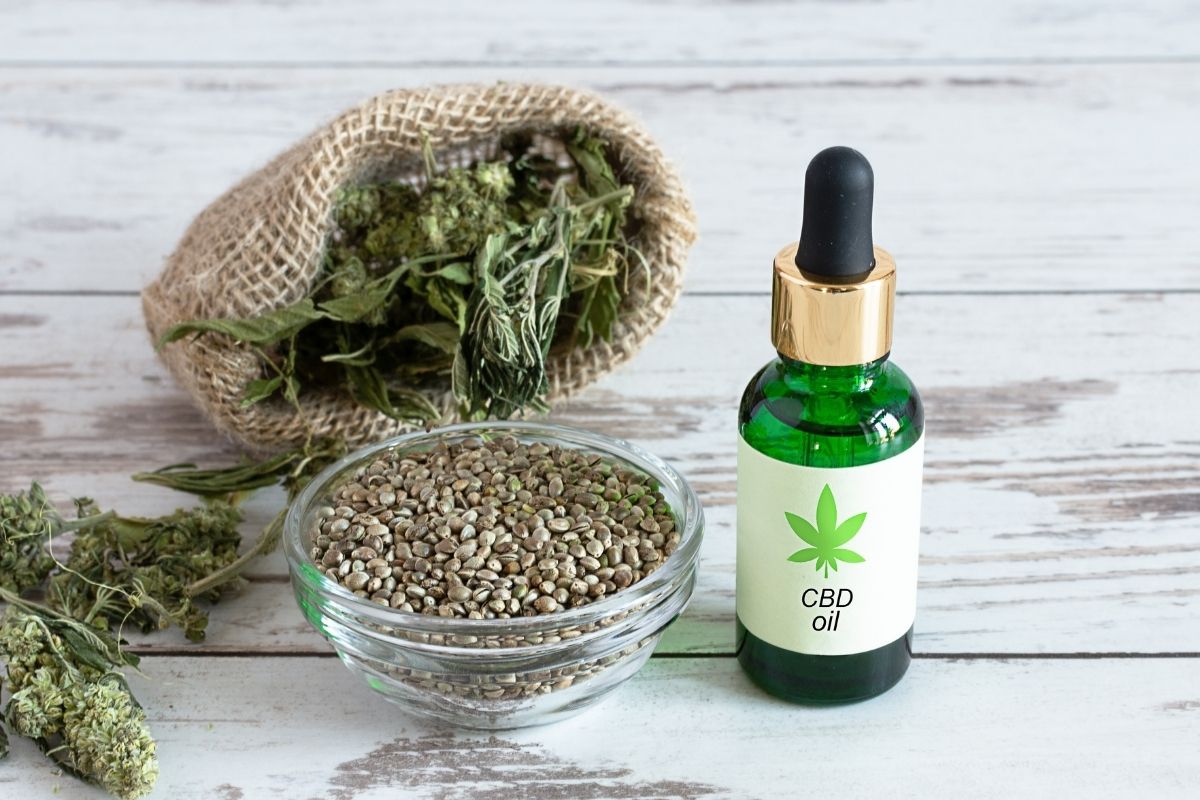
In the ever-evolving landscape of wellness, CBD oil has emerged as a powerful and natural alternative, captivating the interest of individuals seeking holistic approaches to enhance their overall health. Canada, known for its progressive stance on cannabis legalization, has witnessed a surge in the popularity of CBD oil. In this comprehensive guide, we delve into the depths of CBD oil, unraveling its intricacies, potential benefits, legal aspects, and the evolving understanding of its healing power in the Canadian context.
Understanding CBD Oil: A Natural Extract
CBD, or cannabidiol, is a prominent cannabinoid found in the cannabis plant. Unlike its counterpart THC (tetrahydrocannabinol), CBD doesn’t induce a psychoactive high. Instead, it interacts with the endocannabinoid system (ECS) in the human body, influencing various physiological processes such as mood, sleep, appetite, and immune response.
In Canada, the primary source of CBD is industrial hemp, containing minimal THC (below 0.3%). This ensures that CBD products derived from industrial hemp are non-intoxicating and fall within the legal framework established by the Canadian government.
Legal Landscape of CBD Oil in Canada
As of my last knowledge update in January 2022, CBD oil derived from industrial hemp is legal for both medical and recreational use in Canada. However, staying informed about any changes in legislation is crucial, as the regulatory landscape can evolve.
Navigating the legal aspects of CBD in Canada involves ensuring that the CBD oil comes from a reputable source and adheres to quality and safety standards. Choosing products from established brands that provide third-party lab testing results ensures transparency and verifies the purity and potency of the CBD oil.
Potential Benefits of CBD Oil: Unraveling its Therapeutic Potential
CBD oil Canada has garnered attention for its potential therapeutic benefits, with research and anecdotal evidence suggesting positive effects on various aspects of health. Some potential benefits include:
- Anxiety and Stress Relief: CBD interacts with receptors in the ECS associated with stress regulation, potentially promoting a sense of calm and relaxation. Individuals dealing with anxiety or stress may find CBD oil beneficial in managing these conditions.
- Pain Management: The anti-inflammatory properties of CBD make it a promising candidate for managing chronic pain conditions. Whether it’s arthritis, migraines, or general discomfort, individuals exploring natural alternatives may find relief in CBD oil.
- Sleep Improvement: Some users report improvements in sleep quality after using CBD oil. Its calming effects may contribute to a more restful night’s sleep, making it appealing to those dealing with sleep disorders or disturbances.
- Anti-Inflammatory Effects: CBD’s ability to reduce inflammation is not only beneficial for pain management but also for addressing inflammatory conditions such as arthritis or autoimmune disorders.
- Neuroprotective Properties: Research suggests that CBD may have neuroprotective properties, potentially offering benefits for individuals with neurodegenerative conditions.
It’s important to note that individual responses to CBD oil can vary, and consulting with a healthcare professional is advisable, especially when considering CBD for specific health conditions.
Types of CBD Oil: Isolate vs. Full-Spectrum
CBD oil is available in two main forms: isolate and full-spectrum.
- CBD Isolate: This pure form of CBD contains only cannabidiol, with all other cannabinoids and compounds removed. It’s an excellent option for those seeking the potential benefits of CBD without any traces of THC or other cannabinoids.
- Full-Spectrum CBD Oil: This type retains all the naturally occurring compounds found in the hemp plant, including a small amount of THC (within legal limits). The combination of cannabinoids, terpenes, and flavonoids is believed to create an “entourage effect,” enhancing the therapeutic benefits of each compound.
Choosing between isolate and full-spectrum CBD oil depends on individual preferences, sensitivities, and the desired effects. While isolate offers a THC-free option, full-spectrum products harness the synergistic effects of the entire hemp plant.
Methods of Consumption: Exploring Diverse Options
CBD oil comes in various forms, providing users with flexibility in choosing a consumption method that aligns with their preferences and lifestyle. Common methods of consumption include:
- Sublingual Administration: Placing a few drops of CBD oil under the tongue allows for faster absorption into the bloodstream. This method is popular for its efficiency and ease of use.
- Adding to Food or Beverages: Mixing CBD oil into food or beverages provides a discreet and palatable way to incorporate it into daily routines.
- Capsules: Pre-dosed CBD capsules offer a convenient option for those who prefer a precise and controlled dosage. This method is similar to taking traditional supplements.
- Topical Application: CBD oil can be infused into creams, balms, or lotions for topical application. This method is ideal for targeting specific areas of discomfort or addressing skin conditions.
Choosing the right method depends on individual preferences, desired effects, and the specific health goals of the user.
Conclusion: Embracing the Healing Potential of CBD Oil in Canada
In conclusion, CBD oil Canada stands as a beacon of natural healing in the realm of wellness, and its popularity continues to soar in Canada. This comprehensive guide aims to empower individuals with knowledge, offering insights into the basics, potential benefits, legal considerations, and diverse consumption methods of CBD oil.
As we unlock the healing power of CBD oil in Canada, it’s essential to approach its usage with a mindful and informed perspective. Consulting with healthcare professionals, staying abreast of legal developments, and choosing high-quality products contribute to a positive and transformative experience with CBD oil.
Whether seeking relief from stress, managing pain, improving sleep, or exploring holistic wellness, CBD oil offers a versatile and natural option. As the journey with CBD oil unfolds, individuals in Canada can embrace its potential to enhance overall health and well-being, contributing to a holistic approach to self-care in the quest for a balanced and fulfilling life.
Medical Disclaimer:
The information provided in these blog posts is intended for general informational and educational purposes only. It is not a substitute for professional medical advice, diagnosis, or treatment. Always seek the advice of your physician or other qualified healthcare provider with any questions you may have regarding a medical condition. The use of any information provided in these blog posts is solely at your own risk. The authors and the website do not recommend or endorse any specific products, treatments, or procedures mentioned. Reliance on any information in these blog posts is solely at your own discretion.
CBD Oil
Demystifying CBD: What You Need to Know About Cannabidiol

Cannabidiol, commonly known as CBD, has taken the world by storm in recent years. It’s become a buzzword in the wellness industry, and you’ve probably seen it featured in various products, from oils and tinctures to skincare and even beverages. But what exactly is CBD, and what do you need to know about it? In this blog post, we’ll demystify CBD and explore its uses, benefits, and even touch upon its presence in France.
What is CBD? CBD is one of the many compounds found in the cannabis plant. Unlike its cousin, tetrahydrocannabinol (THC), CBD does not produce a psychoactive high. This means that using CBD won’t leave you feeling intoxicated or impaired. Instead, CBD is known for its potential therapeutic properties.
The Legality of CBD The legality of CBD varies from country to country, and France is no exception. In France, CBD products are legal as long as they contain less than 0.2% THC, the psychoactive compound responsible for the “high” associated with cannabis. This legal threshold ensures that CBD products are non-intoxicating and safe for consumers.
France, known for its stringent cannabis regulations, has embraced CBD within these legal limits. French consumers can find a wide range of CBD products, including oils, capsules, and even CBD-infused cosmetics, in stores across the country.
CBD’s Potential Benefits CBD has garnered attention for its potential health benefits. Some of the most commonly reported uses of CBD include:
- Stress and Anxiety Relief: Many individuals turn to CBD to alleviate stress and anxiety. Research suggests that CBD may interact with the body’s endocannabinoid system to help regulate mood and reduce feelings of anxiety.
- Pain Management: CBD is also used by people seeking relief from chronic pain, such as arthritis or neuropathic pain. It’s believed that CBD may help reduce inflammation and alleviate pain without the side effects associated with traditional pain medications.
- Sleep Improvement: Some users report improved sleep quality after incorporating CBD into their routines. CBD’s calming effects may help individuals fall asleep faster and enjoy a more restful night.
Choosing High-Quality CBD Products When considering using CBD, it’s crucial to select high-quality products from reputable sources. Look for products that have been third-party tested for purity and potency. In France, reputable CBD companies adhere to strict quality control standards, ensuring the safety and efficacy of their products.
The Future of CBD in France As the CBD market continues to grow globally, France is poised to play a significant role. French hemp cultivation is expanding, and local CBD producers are gaining recognition for their high-quality products. This not only benefits consumers but also contributes to the country’s economy and agricultural sector.
In conclusion, CBD is a fascinating compound with potential therapeutic benefits, and it’s gaining popularity not only in France but worldwide. Understanding what CBD is, its legal status, and its potential benefits can help you make informed decisions when exploring CBD products. Whether you’re looking for stress relief, pain management, or better sleep, CBD may offer a natural alternative worth considering. Just remember to consult with a healthcare professional before incorporating CBD into your wellness routine, especially if you have underlying medical conditions or are taking medications.
Medical Disclaimer:
The information provided in these blog posts is intended for general informational and educational purposes only. It is not a substitute for professional medical advice, diagnosis, or treatment. Always seek the advice of your physician or other qualified healthcare provider with any questions you may have regarding a medical condition. The use of any information provided in these blog posts is solely at your own risk. The authors and the website do not recommend or endorse any specific products, treatments, or procedures mentioned. Reliance on any information in these blog posts is solely at your own discretion.
CBD Oil
Tincture vs Oil: Which is Better for You?
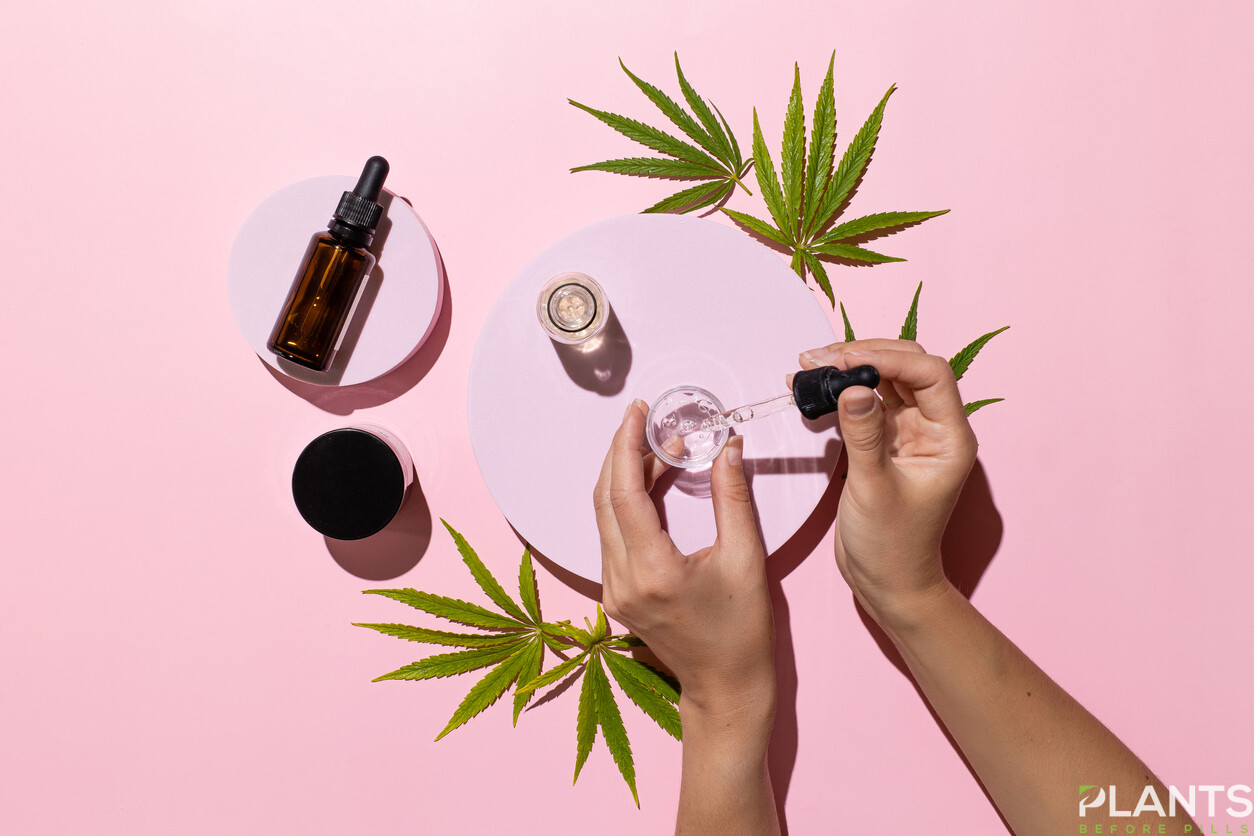
Walking into a dispensary can present you with various ways to enjoy cannabis.
Some tokers prefer the classic method of inhaling – using either joints, pipes, or bongs. Others prefer ingesting instead. When people think of consuming cannabis, their minds gravitate to edibles like brownies, cookies, and even beverages.
However, cannabis comes in simpler forms – oils and tinctures.
If you’re unfamiliar with the two, it can be easy to mistake them for one another.
Learn the differences between these two forms of cannabis, so you can discern which one is the best for you!
What is Cannabis Oil?
You may know a friend or yourself that has suggested cannabis oil to first-time, hesitant users. A classic example of such users is older family members like your mom or dad that grew up believing the rhetoric of reefer madness. From the form cannabis oil comes in, it’s rather simple for the most part.

Yet, what exactly is cannabis oil?
Cannabis oil is known to be extracted directly from cannabis plants. From there, it’s blended with a carrier oil (i.e. coconut oil) and potentially includes compounds like terpenes and flavonoids. You see this mainly with oil extracted from hemp plants since they contain more CBD. However, it’s possible to have more THC if extracted from a ‘skunk plant’ – a notable hybrid strain.
For the most part, people who opt for cannabis oil go for the ones with high CBD. An oil high in CBD is the one best for medicinal use, while the ones high in THC are what gives the ‘high’ feeling that recreational cannabis users want.
What Are Cannabis Tinctures?
There is a lot of confusion surrounding what constitutes a cannabis tincture. Many have mistakenly bought cannabis oils thinking they’re tinctures since both can be ingested and come in similar forms. However, knowing how cannabis tinctures are made can help you discern the difference.
You would be surprised to know that cannabis tinctures use alcohol in their extraction process.
The method involves the cannabis plant being soaked in high-proof alcohol. From there, it takes a few days to steep before being ready to be strained out. Once done, all cannabinoids, terpenes, and other compounds have melded with the base liquid. In turn, this method helps with their preservation by protecting against oxidation.
Since this process doesn’t need much refinement and filtration, tinctures often taste bitter. Tinctures mask the bitterness by mixing with certain flavouring, sweeteners, or even vegetable glycerin. Depending on what you want from a tincture, they can incorporate herbal extracts or supplements (i.e. melatonin).
Comparing Cannabis Oil & Tinctures
One obvious difference between cannabis oil and tinctures lies within their extraction process. However, some might not understand how that can affect them. Depending on your consumption, one might have more benefits than the other.
Application
Cannabis oil and tinctures are both taken under your tongue. They both can be ingested, but you can use cannabis oil for topical application and get affected by it. Meanwhile, tinctures won’t affect them since they’re not meant for topical use.
Supply
There is a reason why cannabis oil and tinctures are mistaken for one another. Cannabis oil is much more readily available, while tinctures are uncommon. Some dispensaries might sell tinctures, but they’re actually cannabis oil. Ensure a tincture’s legitimacy by seeing if it has alcohol.
Taste
When it comes to taste, cannabis oil is better than tinctures. Despite efforts to mask bitterness, tinctures will still taste more bitter than cannabis oil. Plus, there is more variety of flavours with oil.
Ingredients
Compared to oil, tinctures have more ingredients included. Speaking of ingredients, it can dictate which one is best for you. If you’re sensitive to alcohol, oil would be the best choice. However, if you’re allergic to an oil carrier (i.e. coconut oil), then a tincture is best for you.
Lifespan
Everything has an expiration date. However, a tincture will have a longer shelf life than cannabis oil. If you’re going with oil, it’s best to use it frequently. You don’t want to waste money on oil that expires before you’re able to use all of it.
Potency
Potency is an important factor to consider for any cannabis user. You can expect both to be rather potent. However, cannabis oil would be more concentrated in comparison.
Absorption
There is debate on which one absorbs faster. However, the consensus indicates that tinctures provide faster and more efficient absorption.
Cannabis oil and tinctures share a lot of similarities. However, they do have key differences, namely how they’re made. In turn, it can affect how you enjoy cannabis. Since everyone is different, an oil or tincture can be the best or subpar. In which case, the one that can fulfil your expectations is ultimately the best for you.
Medical Disclaimer:
The information provided in these blog posts is intended for general informational and educational purposes only. It is not a substitute for professional medical advice, diagnosis, or treatment. Always seek the advice of your physician or other qualified healthcare provider with any questions you may have regarding a medical condition. The use of any information provided in these blog posts is solely at your own risk. The authors and the website do not recommend or endorse any specific products, treatments, or procedures mentioned. Reliance on any information in these blog posts is solely at your own discretion.
-
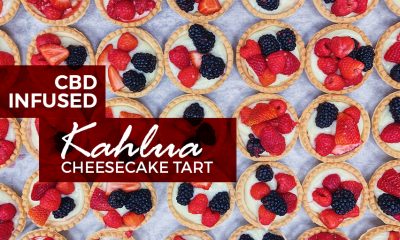
 Cannabis Recipes5 years ago
Cannabis Recipes5 years agoCBD-Infused Kahlua Cheesecake Tart With Scientist-Turned-Chef Chris Yang | Like A Chef [VIDEO]
-

 Cannabis Business2 years ago
Cannabis Business2 years agoRAW Paper’s Announces Details On Their “Golden Ticket” Sweepstakes
-
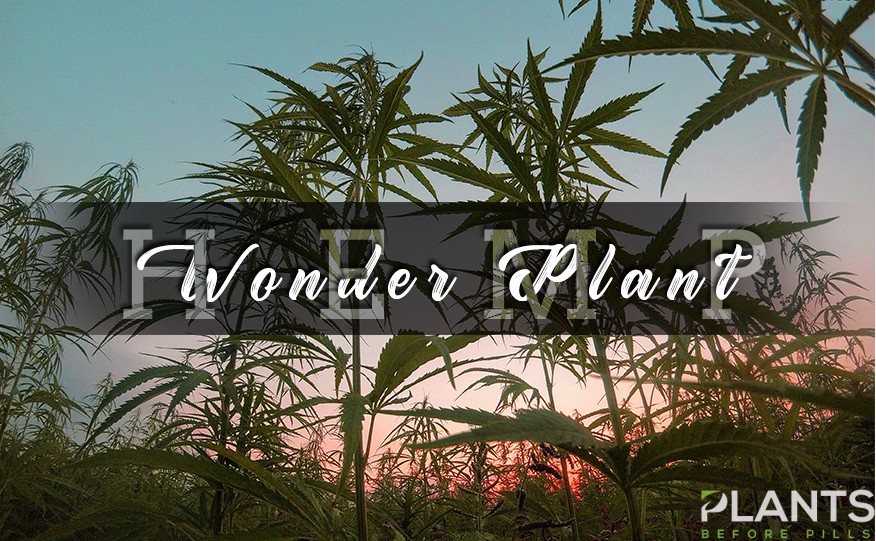
 CBD Plants & Strains5 years ago
CBD Plants & Strains5 years agoCan you smoke CBD hemp flower?
-

 Cannabis 1014 years ago
Cannabis 1014 years agoHow to Choose the Best Dispensary in Scottsdale AZ
-
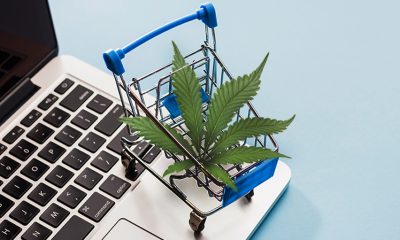
 Cannabis Lifestyle5 years ago
Cannabis Lifestyle5 years agoWhat To Look For When Buying High-Quality CBD Products
-
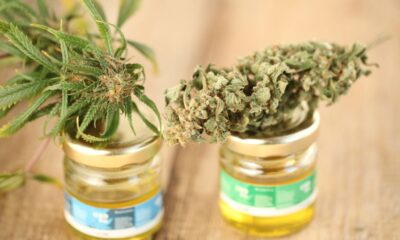
 Cannabis Blogs3 years ago
Cannabis Blogs3 years agoTop CBD Trends in 2022
-

 Cannabis Blogs4 years ago
Cannabis Blogs4 years agoCBD and Coffee
-

 Cannabis Recipes4 years ago
Cannabis Recipes4 years agoCbd & strawberry vinaigrette





